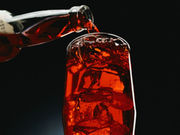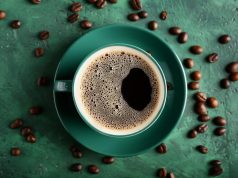Researchers don’t know if beverages impair sleep or lack of sleep prompts cravings
THURSDAY, Nov. 10, 2016 (HealthDay News) — Improving sleep may help reduce an individual’s sugar-sweetened, caffeinated beverage intake, and vice-versa, according to a study published online Nov. 9 in Sleep Health.
Aric A. Prather, Ph.D., of the University of California, San Francisco, and colleagues analyzed self-reported sleep duration and beverage intake data from 18,779 American adults.
The researchers found that individuals who regularly slept five or fewer hours a night drank 21 percent more sugar-sweetened, caffeinated beverages like soda and energy drinks than those who slept seven to eight hours a night. People who regularly slept six hours a night consumed 11 percent more of the drinks than those who got more sleep. The investigators found no link between the amount of sleep and consumption of juice, tea, or diet drinks.
“Short sleep is associated with greater intake of sugared caffeinated sodas, a relationship that may have important, though unrecognized, implications for physical health. Directionality of this relationship cannot be determined from this study. Although caffeinated drinks could account for impaired sleep, it is possible that short sleep could influence one’s appetitive drive for sugared caffeine drinks,” the authors write. “Further examination of this relationship using prospective designs is warranted.”
Full Text (subscription or payment may be required)
Copyright © 2016 HealthDay. All rights reserved.








